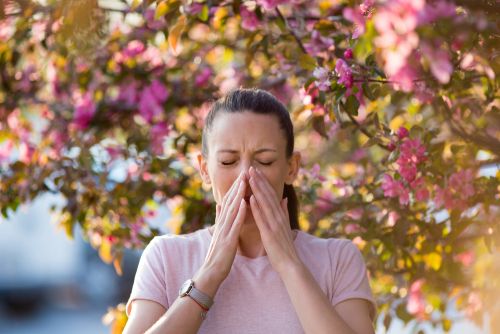Are your seasonal allergies making you suffer? Before raiding the “non-prescription” section of the pharmacy, here are some tips from 60 million consumers.
According to Inserm, between 15% and 20% of French people suffer from rhinitis or allergic conjunctivitis. However, spring is the worst season for allergy sufferers since pollens are out: at the moment, it is mainly birch, hornbeam, ash and cypress pollens which are responsible for the symptoms.
To relieve allergy symptoms (a runny nose, watery eyes, itchy throat, etc.), many of us turn to more or less natural medications. Exactly: the magazine 60 million consumers has just published a survey on antiallergics available in pharmacies without a prescription.
The experts tested 22 references for use orally (tablets, drops, etc.), nasally (inhalers, etc.) or ocularly (eye drops, etc.). First info: “The best-selling oral products are antihistamine medications. They counter the effects of histamine, the main molecule involved in allergy. These are those with the highest level of evidence of effectiveness..” A priori, medications based on loratadine and of cetirizine are therefore rather effective.
Food supplements, not necessarily effective against allergic symptoms
What about medicines sold as “natural”? “If medicines must demonstrate a good benefit/risk ratio in order to obtain a marketing authorization (AMM), the same is not true for food supplements which only require a simple declaration to of the Directorate General for Competition, Consumer Affairs and Fraud Control (DGCCRF). (…) And they cannot claim any therapeutic effect.” underlines 60 million consumers. These products are therefore not necessarily effective against seasonal allergy symptoms.
Finally, “medicines” formulated with essential oils must be used with caution: they are in particular prohibited in children, pregnant and breastfeeding women, as well as in cases of allergy to perfumes. Consult your pharmacist !
Source :60 million consumersApril 2023.
